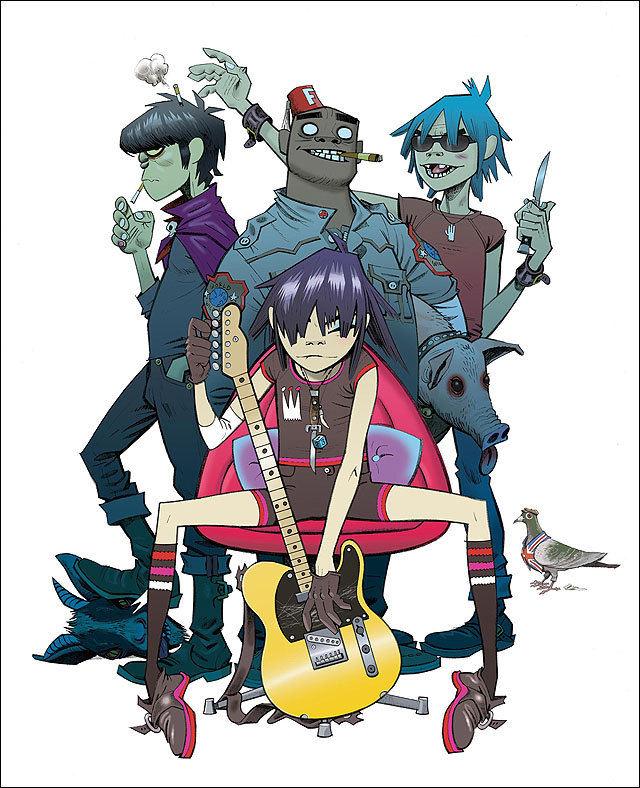Gorillaz’ ‘Demon Days’ spawns iPod commercial
Band members talk about their latest effort
New York ? The idea of charismatic Blur frontman Damon Albarn hiding behind a fictional cartoon band to make an experimental fusion of hip-hop and garage rock probably seemed crazy at the time.
But the Gorillaz’ 2001 debut album sold more than 6 million records worldwide and spawned “Clint Eastwood,” one of the most despondent, yet strangely mesmerizing, hit singles in recent memory.
Now comes “Demon Days,” the Gorillaz’ highly anticipated follow-up, which debuted at No. 6 on the album charts last week with 107,000 copies sold. No longer regarded as Albarn’s quirky side project, “Demon Days” already has a catchy roller-skating iPod commercial attached to its first single, “Feel Good Inc.”
For the latest album, Albarn invited the usual assortment of haphazard guest stars: Danger Mouse (a.k.a. Brian Burton, the producer behind the infamous Grey Album); De La Soul; Ike Turner, MF Doom, even Dennis Hopper.
Q: “Demon Days” is darker than its predecessor and a pretty somber album for a cartoon band. What set the mood?
A: Albarn: The album exists kind of in the nighttime entirely except for the last song, which kind of alludes to a new day. Its about demons, it’s about where they descend upon the earth whereas the other record was really quite more direct. It’s a moody record but we live in very moody times.
Q: Was Danger Mouse’s work on “The Grey Album” enough to invite him on board?

Gorillaz uses cartoon characters to represent the musicians. They are, back row from left, Murdoc, Russel and 2D along with Noodle in front. The Gorillaz' 2001 debut sold more than 6 million records worldwide. Now comes Demon
Albarn: Yeah, last year I switched on the radio and I thought the loudest bleep out there was Brian’s so I reined him in. Brian is the best producer I’ve ever worked with and the youngest producer I’ve ever worked with. I used to be younger than my producers but now I’m older than my producers and I think that works for me, that works better cause you get a good kick up the … everyday.
Q: How did you get involved with the iPod people?
Albarn: That’s not much to do with us. I’ve kind of realized over the last 15 years that the business side is to be left to the professionals.
Q: Yeah, but Blur’s music was in tons of commercials as well.
Albarn: I’m slightly ambivalent to the whole relationship between the whole advertising world and music. I think sometimes it works and sometimes it’s a really bad mismatch. I think on this occasion its fine because the iPod is like your own mini-library and that can’t be a bad thing. It promotes eclecticism and that’s very much what we are about so it’s a good relationship.
Q: Are there bits of you in your cartoon alter egos?
Albarn: I don’t feel particularly like the cartoons.
Q: Hiding behind illustrations is a way of keeping people out of your personal lives and letting the music speak for itself, but how do you balance the cartoon images with reality?
Albarn: Well we try not to come out, just when we get forced out. They hang a really big carrot out, like a really good meal or something. It just seems to me, having done the whole kind of celebrity thing not so much in this country but definitely in Europe, it seems after a while people become kind of enveloped in their own image and can’t really escape from it and I think it sort of breeds a kind of laziness in people. You know I don’t see the biggest bands in the world really developing much over their careers these days, not compared to the Beatles or the Who or the Stones you know what I mean?




